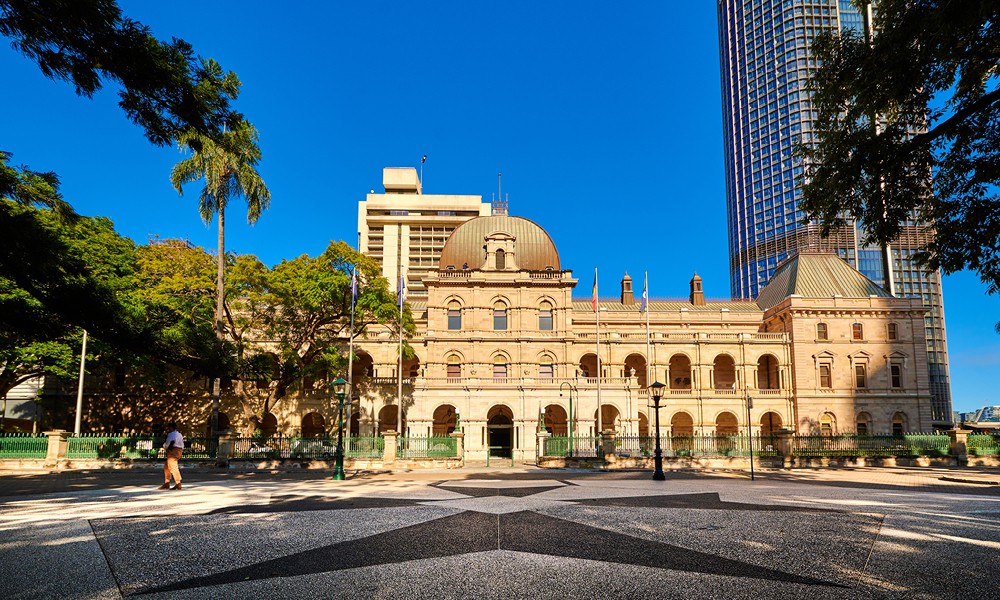The Public Sector Bill 2022 (the Bill) received Royal Assent last month following a detailed inquiry conducted by the parliamentary Economics and Government Committee (the committee).
The Public Sector Act 2022 (the Act) replaces the Public Service Act 2008 and introduces a new public sector framework, consistent with the primary recommendation of the review by Peter Bridgman, A Fair and Responsive Public Service for All (the Bridgman Review), to implement a modern and simplified legislative framework for all Queensland public sector employees.
Alongside the Bridgman Review recommendations, the Act also seeks to implement the recommendations of the independent review by Professor Peter Coaldrake, Let the sunshine in: Review of culture and accountability in the Queensland Public Sector (the Coaldrake Report), which aim to strengthen the independence of certain core integrity bodies, among other things.
What are the significant changes proposed in the Act and what do they seek to achieve?
Public sector reviews
The Act introduces a public sector review function that enables the relevant Minister or Public Sector Governance Council to initiate a review about any matter or aspect of public administration, including the effectiveness, efficiency, functions or activities of a public sector entity.1
During the committee’s consideration of the Bill, the Electoral Commission of Queensland (ECQ) and the Queensland Human Rights Commission (QHRC) submitted that they should be excluded from the Bill’s public sector review framework to preserve their independence from the executive government.2
In both ECQ’s and QHRC’s submission to the committee, it was argued that the proposed public sector review function would have a “chilling effect” on discharging their statutory duties, in that it seriously undermined the independence of both agencies.3
Queensland Law Society supported these views and argued that the proposed public sector review powers “affect the ability of the [QHRC] to perform its functions”.4
Although the committee concluded there was no “strong evidence” to preclude the ECQ and the QHRC from the public sector review function, Queensland Government did amend the Bill to exclude these entities from the public sector review function, consistent with its treatment of other core integrity bodies.5
Diversity target groups
The term, ‘Diversity target groups’, is defined in the Bill as “Aboriginal peoples and Torres Strait Islander peoples; people from culturally and linguistically diverse backgrounds; people with disability; women and a group prescribed by regulation”.6
Under the Bill, chief executive officers of prescribed entities have a duty to promote equity, diversity, respect and inclusion in the public sector. They are required to take reasonable action to ensure people from one or more diversity target groups are able to pursue careers, and eliminate unlawful discrimination in prescribed entities.7
The Bill does not specifically include the LGBTQ+ community as a diversity target groups. In that regard, submissions received by the committee expressed disappointment on the exclusion of the LGBTQ+ community from the Bill. The submissions proposed that the LGBTIQ+ community to be included as a diversity target groups.8
In its response, the committee acknowledged the discrimination and harassment experienced by members of the LGBTIQ+ community.9 It pointed out that the intent of the term ‘diversity target groups’ was “not to prevent discrimination” and that the LGBTIQ + community could be included by regulation, “should evidence emerge of the need for additional diversity target groups”.10
Ultimately, the Queensland Government did not include LGBTQ+ as a specified diversity group in the Act.
Reframing state’s relationship with Aboriginal and Torres Strait Islander peoples
The Bill proposed a new framework for “reframing entities” to support the Queensland Government in reframing its relationship with Aboriginal peoples and Torres Strait Islander peoples, and to develop the cultural capability of ‘prescribed entities’ covered by the Bill.11
To achieve this, reframing entities and prescribed entities are required to take active steps to recognise the importance of the right to self-determination, and foster a culturally capable workforce and a safe workplace for Aboriginal peoples and Torres Strait Islander peoples.12
The Bill imposes a statutory duty on chief executives to develop and publish a ‘reframing the relationship plan’, which identifies measures for developing the cultural capability of prescribed entities.13 However, the duty cannot be enforced and does not create a legal right or give rise to a civil cause of action.14 Therefore, chief executive officers cannot be held accountable for failure to comply with the duty.15
Submissions made to the committee supported the Bill’s stated objectives. The Bill was seen as an improvement to the current Public Service Act 2008. They advocated for an inclusion of a separate definition of cultural capability in recognition of “the unique historical issues facing Aboriginal and Torres Strait Islander people”,16 which has been included in the Act.
Although no further amendments were made to the Act in this regard, submitters broadly welcomed the stated objectives in reframing the State Government’s relationship with Aboriginal peoples and Torres Strait Islander peoples.
At the time of writing Yale Hudson-Flux was a graduate solicitor at Queensland Law Society. Apolina Balebanga is a Paralegal in the QLS Office of General Counsel.
Footnotes
1 Public Sector Act 2022 (Qld) ch.6, pt8.
2 Amendments in Committee – Explanatory Note, Public Sector Bill 2022 (Qld) 2; Parliamentary report, Public Sector Bill 2022 (November 2022) 2.6.3.1.
3 Submission, Electoral Commission Queensland (October 2022) 2; Submission, Queensland Human Rights Commission (October 2022) 10.
4 Submission, Queensland Law Society (October 2022) 3.
5 Public Sector Act 2022 (Qld) ss254(2)(ea)-(eb).
6 Public Sector Bill 2022, s25.
7 Economic and Governance Committee, Queensland Parliament, Public Sector Bill 2022 (Report N, 37, November 2022) 19.
8 Ibid 11.
9 Ibid 11.
10 Ibid.
11 Explanatory Notes, Public Sector Bill 2022 (Qld) 16.
12 Public Sector Bill 2022, s19.
13 Economic and Governance Committee, Queensland Parliament, Public Sector Bill 2022 (Report N, 37, November 2022) 9.
14 Public Sector Bill 2022, s21(4).
15 Ibid.
16 Economic and Governance Committee, Queensland Parliament, Public Sector Bill 2022 (Report N, 37, November 2022) 11; Submission, Queensland Indigenous Family Violence Legal Service, (28 October 2022).








Share this article